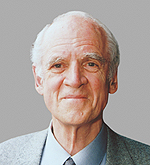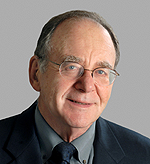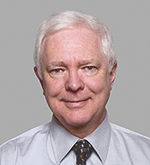The 2008 Kyoto Prize Laureates
24 June 2008
Dr. Charles Margrave Taylor (Canada, November 5, 1931)
Philosopher
Professor Emeritus, McGill University. Construction of a Social Philosophy to Pursue the Coexistence of Diverse Cultures.
Dr. Taylor is an outstanding philosopher who advocates communitarianism and multiculturalism from the perspective of holistic individualism. He has pointed the future course for us through his own life, envisioning the future in which diverse, heterogeneous cultures peacefully coexist upon mutual recognition.
Professor Emeritus, McGill University. Construction of a Social Philosophy to Pursue the Coexistence of Diverse Cultures.
Dr. Taylor is an outstanding philosopher who advocates communitarianism and multiculturalism from the perspective of holistic individualism. He has pointed the future course for us through his own life, envisioning the future in which diverse, heterogeneous cultures peacefully coexist upon mutual recognition.
Dr. Richard Manning Karp (U.S.A., January 3, 1935)
Computer Scientist
University Professor, University of California, Berkeley, Senior Research Scientist, International Computer Science Institute.
Fundamental Contributions to the Development of the Theory of Computational Complexity.
Dr. Karp has had a profound influence on the guiding principles for evaluation and design of algorithms by developing a great many practically relevant computer processing algorithms and establishing the theory of NP-completeness. He has thereby made fundamental contributions to the development of the theory of computational complexity which began in the early 1970s.
University Professor, University of California, Berkeley, Senior Research Scientist, International Computer Science Institute.
Fundamental Contributions to the Development of the Theory of Computational Complexity.
Dr. Karp has had a profound influence on the guiding principles for evaluation and design of algorithms by developing a great many practically relevant computer processing algorithms and establishing the theory of NP-completeness. He has thereby made fundamental contributions to the development of the theory of computational complexity which began in the early 1970s.
Dr. Anthony James Pawson (Canada, U.K., October 18, 1952)
Molecular Biologist
Distinguished Investigator, Samuel Lunenfeld Research Institute of Mount Sinai Hospital. University Professor, University of Toronto.
Proposing and Proving the Concept of Adapter Molecules in the Signal Transduction.
Dr. Pawson proposed and proved the concept that the unique adapter structure exists in signaling proteins, and that the binding of adapters to specific phosphotyrosine-containing domains induces cascades of intracellular signaling that controls cellular growth and differentiation. This concept has established one of the basic paradigms of signal transduction and significantly contributed to the subsequent development in life sciences.
Distinguished Investigator, Samuel Lunenfeld Research Institute of Mount Sinai Hospital. University Professor, University of Toronto.
Proposing and Proving the Concept of Adapter Molecules in the Signal Transduction.
Dr. Pawson proposed and proved the concept that the unique adapter structure exists in signaling proteins, and that the binding of adapters to specific phosphotyrosine-containing domains induces cascades of intracellular signaling that controls cellular growth and differentiation. This concept has established one of the basic paradigms of signal transduction and significantly contributed to the subsequent development in life sciences.




